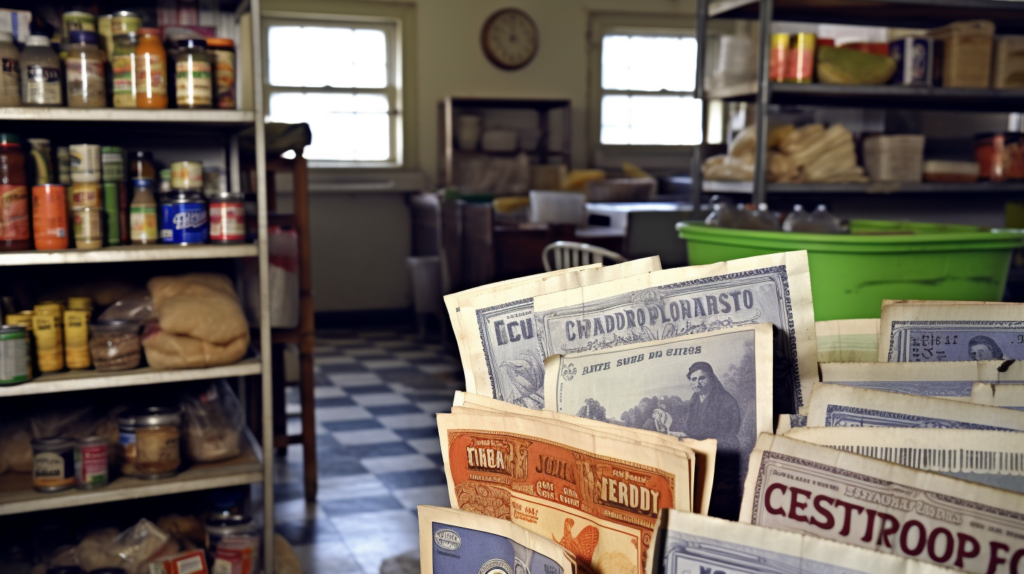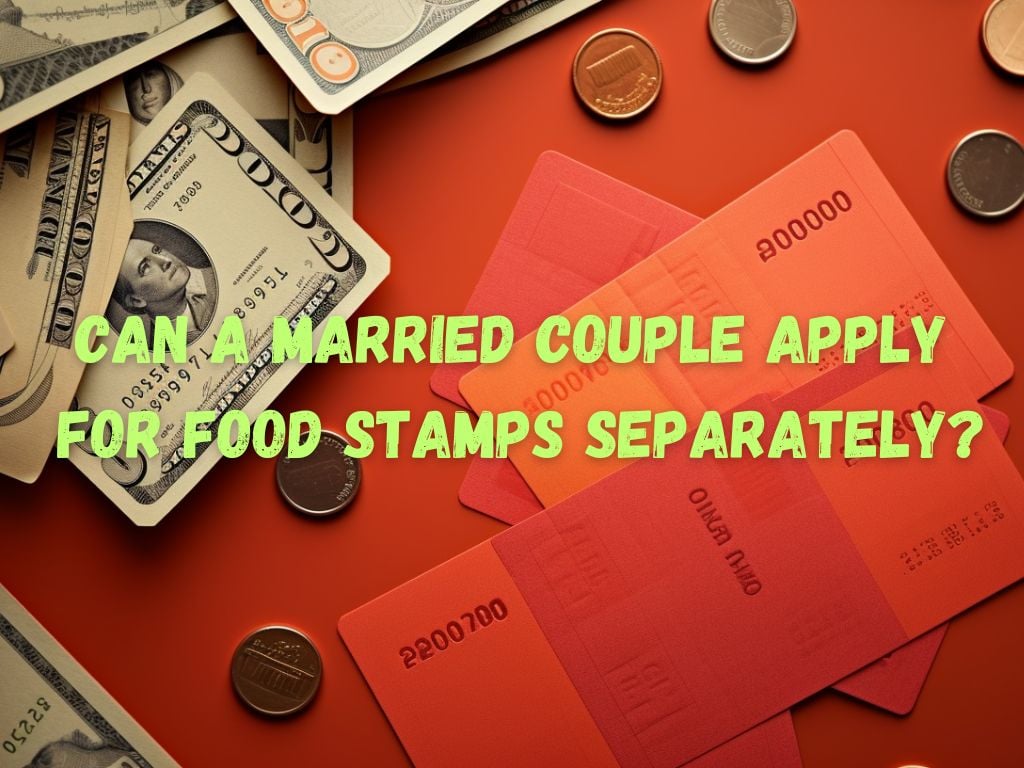Food stamps are an important resource that many families rely on to meet their basic needs.
However, the question often arises: can a married couple apply for food stamps separately?
In this article, we will delve into the eligibility requirements, regulations, and options for married couples seeking assistance.
Despite the common misconception, married couples are generally considered part of the same household for food stamp purposes.
We will explore the circumstances under which a married couple may be able to apply separately, the implications of doing so, and provide pro tips for navigating the application process as a married couple.
Understanding the Food Stamp Household
To understand whether a married couple can apply for food stamps separately, it is crucial to grasp how households are determined for food stamp purposes.
The United States Department of Agriculture (USDA) defines a food stamp household as individuals who live together and customarily purchase food and prepare meals together.
In most cases, married couples fall under this definition and are considered part of the same household.
Can a Married Couple Apply for Food Stamps Separately?
In most cases, married couples are considered part of the same food stamp household and are expected to apply together.
This means their combined income and assets are evaluated for eligibility and benefits. However, there are circumstances like legal separation under which a married couple may be able to apply for food stamps separately.

Legal Separation and Food Stamp Eligibility
In cases of legal separation, where a married couple has obtained a court order recognizing their separation, it may be possible for them to apply for food stamps separately.
Legal separation signifies that the spouses have decided to live apart and divide their responsibilities.
To determine eligibility in this situation, the couple must provide documentation proving their legal separation, such as a court order or agreement.
It is essential to consult with the local food stamp office or the USDA for specific requirements regarding legal separation and food stamp applications.
Implications of Being Married and Applying Separately
While legal separation allows a married couple to apply for food stamps separately, it is essential to understand the implications of doing so.
Applying as separate households rather than a married couple can have an impact on each individual’s eligibility and benefits.
Eligibility for food stamps is determined by various factors, including income and assets.
By applying separately, each spouse’s income and assets are evaluated individually, potentially affecting their overall eligibility.
Additionally, the benefits received by each spouse may differ compared to applying as a married couple.
Factors Influencing Food Stamp Eligibility for Married Couples
When determining food stamp eligibility for married couples, several factors come into play.
It’s essential to understand these factors to assess eligibility accurately. Here are some key points to consider:
Income
The income of a married couple, including all household members, is a significant consideration in determining food stamp eligibility.
The United States Department of Agriculture (USDA) sets income limits based on household size and income earned by all household members.
The total household income is used to calculate eligibility for food stamps. If the combined household income falls below the income limit, the couple may qualify for assistance.
Assets
Apart from income, assets are taken into account when determining eligibility. Assets can include savings accounts, stocks, property, and resources that can be converted into cash.
While the USDA considers income as the primary factor, some states may also take assets into consideration. It is important to research and understand the asset limits specific to the state of residence.
Marital Status
By default, married couples are generally considered part of the same food stamp household. This means that they are expected to apply together and their combined income and assets are evaluated for eligibility.
However, there are exceptions to this rule, such as legal separation, which allows couples to apply as separate households.
Legal separation requires documentation, such as a court order or agreement, to prove the separation to food stamp authorities.
Special Circumstances
Specific circumstances may affect the eligibility of married couples. For example, if one spouse is a college student, there may be specific regulations regarding their eligibility.
Additionally, households with elderly or disabled members may have different criteria for eligibility.
It is crucial to research the specific rules and regulations applicable to individual circumstances to ensure accurate eligibility determinations.

Pro Tips for Married Couples Applying for Food Stamps
Navigating the food stamp application process as a married couple can sometimes be challenging. Here are some pro tips to make the process smoother:
Gather all necessary documentation
Ensure you have all the required documentation in order before applying.
This includes identification, Social Security numbers, income records, and any specific documentation related to your individual circumstances (e.g., legal separation orders).
Having all necessary documentation prepared in advance can facilitate a smoother application process.
Communicate openly with your partner
Discuss your financial situation openly with your spouse and align your objectives when applying for food stamps.
Consider the potential implications and benefits of applying as a married couple versus individually.
Being on the same page and understanding the options available can help avoid confusion and streamline the process.
Seek professional guidance
If you are unsure about the eligibility criteria or have any unique circumstances, reach out to the local food stamp office or consult with specialized organizations that can provide guidance tailored to your needs.
They can help clarify any doubts or questions you may have and provide expert advice regarding your eligibility and the application process.
Maintain accurate records
Throughout the process, it is essential to keep track of any changes in your financial situation, income, or household composition.
Reporting these changes promptly is crucial to ensure accurate benefit calculations and avoid any penalties for providing incorrect information.
Frequently Asked Questions
Q: If I get married, will I lose my Medicaid and food stamps?
A: Marriage can impact Medicaid and food stamp eligibility. It is essential to understand the specific eligibility requirements and consult with the relevant agencies to determine any changes in eligibility.
Q: Can a married couple get food stamps if they live together?
A: In most cases, married couples who live together are considered part of the same food stamp household. However, legal separation may allow a couple to apply individually. Consult with the local food stamp office or USDA for specific regulations.
Q: Will the food stamp program know if I get married?
A: The food stamp program requires recipients to report changes in their circumstances, including marital status. It is important to inform the food stamp office about any changes promptly to ensure accurate eligibility determinations.
Q: Can more than one person receive food stamps in the same household?
A: Yes, in households with multiple eligible individuals, each person can apply for food stamps. The benefits received are determined based on each individual’s income and circumstances.
Q: What are the consequences of not reporting marriage to welfare?
A: Failing to report changes in marital status can lead to incorrect benefit calculations and potential penalties. It is crucial to report any changes promptly to ensure accurate assistance.

Conclusion
When it comes to applying for food stamps as a married couple, it is important to understand the regulations and eligibility requirements.
While married couples are generally considered part of the same household, legal separation may allow for separate applications.
However, the implications of applying separately need to be carefully considered, as eligibility and benefits may be affected.
By understanding the specific rules and maintaining accurate records, couples can navigate the application process efficiently.
If unsure, seeking guidance from relevant authorities can provide clarity and ensure the best course of action.
Remember that food stamps are intended as a resource for those in need, and knowing the rules and options helps married couples make informed decisions.


 Tags:
Tags:










